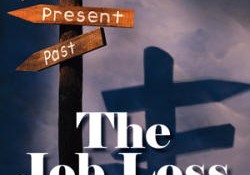As we come to the end of 2017, it is customary to reflect on the past year and forecast the year ahead. What strikes me are two opposing trends that deserve attention.
1. Totality of work. There is increasing evidence that work today governs our everyday conduct in much the same way that religion guided the lives of medieval people during the middle Ages. From the time we awake until we sleep (and even during sleep) our clock is organized around our work obligations—from rushing kids to day-care, to running errands during work breaks, to buying a fast food family dinner on the commute home, to bringing work home, to checking work emails 24/7, to applying sleep aids that mitigate the effects of anxiety, worry and burnout associated with our waking work lives. In many respects, work is not only at the centre of our culture; it is the totality of life! Work is no longer a means to an end but an end in itself.
2. The replacement of good paying jobs by AI, automation, and robots. We all know that manufacturing has been hit hardest by this tsunami of technological change. But millions of jobs are going to be lost soon in other sectors, including finance, law, medicine, education, as well as blue collar jobs like transport drivers, retail clerks, warehouse workers, crop pickers, cleaning staff, and so on. The government mantra for economic growth “Jobs! jobs! jobs!” is moving quickly beyond their ability to deliver job stability for the majority of citizens. In the meantime, the gap between the ultra rich and the rest of us grows ever wider.
These two trends go to the heart of who we are as individuals and as a society. Since the Industrial Revolution, our sense of self-worth comes primarily from our jobs. In short, we are socially worthless without a job. We are what we do; you are your job. It is the link between work and wages that defines us. In this cultural context, net-worth becomes the key determinant of self-worth. We conform and submit our lives to this social norm as the ‘right’ way to live in order to achieve home ownership through job stability and financial security.
Prediction
What I see happening over the next year or so is a broader public conversation about the future of work. Some of you have heard of Universal Basic Income trials backed by some governments and high tech entrepreneurs. This is just one example of people re-conceptualizing the link between work and wages. The notion that “any work is good work” now seems out-moded.
In 2018, I predict we will see increasing pressure on leaders to alter their habits of mind and think beyond “a job for life” as the purpose of existence. This will create a lot of tension, even conflict, in society because the totality of work is so embedded in our way of doing things that the prospect of change will be frightening for many and challenging for all.
If we want our leaders to boldly imagine an alternative future, then we need to prepare ourselves to do the same. Here at JobJoy, we are in the change business. Everyday we help individuals change their jobs or careers.
Change is inevitable! All the more reason to enjoy periods of stability, peace and comfort as they occur. I hope your holiday season is full of them and may good health and prosperity fill you throughout the coming year!










